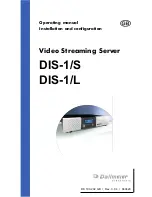
General Soldering Guidelines
1. Use a grounded-tip, low-wattage soldering iron and appropriate tip size and shape that
will maintain tip temperature within the range of 500
o
F to 600
o
F.
2. Use an appropriate gauge of RMA resin-core solder composed of 60 parts tin/40 parts
lead.
3. Keep the soldering iron tip clean and well tinned.
4. Thoroughly clean the surfaces to be soldered. Use a mall wire bristle (0.5 inch, or
1.25cm) brush with a metal handle. Do not use freon-propelled spay-on cleaners.
5. Use the following unsoldering technique
a. Allow the soldering iron tip to reach normal temperature.(500
o
F to 600
o
F)
b. Heating the component lead until the solder melts.
c. Quickly draw the melted solder with an anti-static, suction-type solder removal
device with solder braid.
CAUTION: Work quickly to avoid overheating the circuit board printed foil.
6. Use the following unsoldering technique
a.
Allow the soldering iron tip to reach normal temperature.(500
o
F to 600
o
F )
b.
First, hold the soldering iron tip and solder the strand against the component lead
until the solder melts.
c.
Quickly move the soldering iron tip to the junction of the component lead and the
printed circuit foil, and hold it there only until the solder flows onto and around both
the component lead and the foil.
CAUTION: Work quickly to avoid overheating the circuit board printed foil.
d.
Closely inspect the solder area and remove any excess or splashed solder with a
small wire-bristle brush.
Remove /Replacement
Some chassis circuit boards have slotted holes (oblong) through which the IC leads are
inserted and then bent flat against the circuit foil. When holes are of slotted type, the
following technique should be used to remove and replace the IC. When working with
boards using the familiar round hole, use the standard technique as outlined .
Removal
Desolder and straighten each IC lead in one operation by gently prying up on the lead with
the soldering iron tip as the solder melts.
Draw away the melted solder with an anti-static suction-type solder removal device (or with
solder braid) before removing the IC.
Replacement
Carefully insert the replacement IC in the circuit board.
Warning and Cautions










































